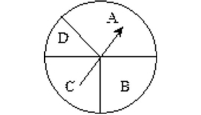Exam 11: Further Topics in Algebra
Exam 1: Equations and Inequalities494 Questions
Exam 2: Graphs and Functions525 Questions
Exam 3: Polynomial and Rational Functions516 Questions
Exam 4: Inverse, Exponential, and Logarithmic Functions471 Questions
Exam 5: Trigonometric Functions301 Questions
Exam 6: The Circular Functions and Their Graphs289 Questions
Exam 7: Trigonometric Identities and Equations494 Questions
Exam 8: Applications of Trigonometry446 Questions
Exam 9: Systems and Matrices505 Questions
Exam 10: Analytic Geometry206 Questions
Exam 11: Further Topics in Algebra351 Questions
Exam 12: Review of Basic Concepts640 Questions
Select questions type
It can be shown that is true for any real number n (not just positive
integer values) and any real number x, where Use this series to approximate the given number to the nearest
thousandth.
-
(Essay)
4.8/5  (36)
(36)
Decide whether the given sequence is finite or infinite.
--3, -2, -1, 0, . . .
(Multiple Choice)
4.8/5  (35)
(35)
Solve the problem.
-A man borrowed $2000 at 2.5% interest compounded annually. If he paid off the loan in full at the end of 6 years, how much did he pay?
(Multiple Choice)
4.8/5  (43)
(43)
Solve the problem.
-A fair spinner has regions numbered 1 through 21. What is the probability that the spinner will stop on an even number or a multiple of 3?
(Multiple Choice)
4.7/5  (35)
(35)
Find the first term and the common ratio for the geometric sequence. Round approximations to the nearest hundredth.
-
(Multiple Choice)
4.8/5  (31)
(31)
Solve the problem.
-Find the sum of the first 992 positive even integers.
(Multiple Choice)
4.8/5  (40)
(40)
Solve the problem.
-An ordinary die is tossed. What are the odds in favor of the die showing a number less than 3?
(Multiple Choice)
4.8/5  (36)
(36)
Solve the problem.
-What are the odds in favor of spinning an A on this spinner? 
(Multiple Choice)
4.9/5  (35)
(35)
Solve the problem.
-A student is told to work any 7 out of 10 questions on an exam. In how many different ways can he complete the exam? (The correctness of his answers has no bearing.)
(Multiple Choice)
4.8/5  (36)
(36)
Showing 341 - 351 of 351
Filters
- Essay(0)
- Multiple Choice(0)
- Short Answer(0)
- True False(0)
- Matching(0)